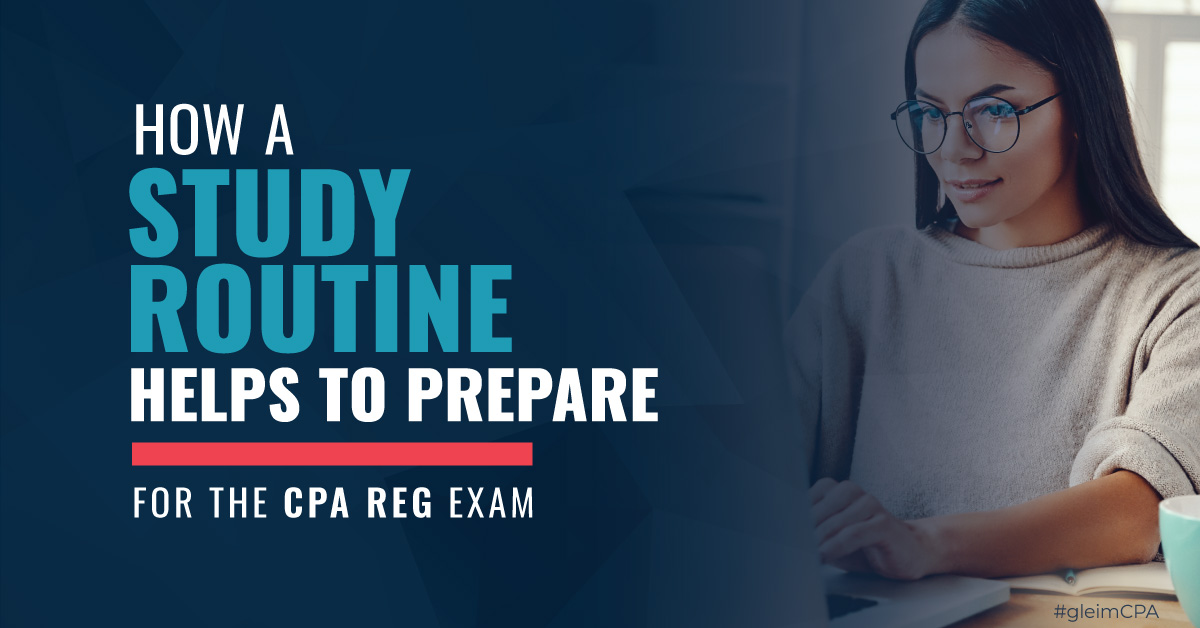Contact Us : 800.874.5346 International: +1 352.375.0772

Whenever I heard that someone had studied full-time for their CPA before starting work, I had always been envious. It seemed like such a luxury to study instead of working, and I was sure that if I could ever do that, passing the CPA would be a piece of cake. And it’s not like this is the first time I’ve ever studied for the test.
I am here to tell you, two weeks into cramming for REG, that I would MUCH rather be working. Unlike working, every moment you’re studying, you’re actively using your brain. In a typical day, even when I was at school, I spend a lot of time on autopilot. But if you aren’t actively thinking when you’re studying, you won’t learn and retain the material.
It’s exhausting, and with my test date coming up fast, I don’t exactly have a lot of time to pace it out. I try to match my studying amount to a typical work day, but I find that after roughly five hours, I start to have trouble focusing. The other issue with cramming for the exam is I didn’t give myself quite enough time to figure out how I learn and study best. A lot of people might have figured this out in college, but honestly, studying for the CPA is more intensive than anything I’ve had to study for before.
Even AP exams and my harder college courses had a much smaller volume of material, so I was able to get by on copious notes and intense memorization. With the CPA, it’s simply too much material to memorize, and I can’t possibly take notes on everything. It would take too long, and there would be too many notes to review.
So far, I’ve found the best strategy is to go through the study unit and only take notes where I need to rephrase something for my personal clarification. I then take the adaptive quizzes and simulations to see where my weak points are, and then go back and take notes on those sections in particular. This way, it cuts my note-taking down to the bare minimum and allows me to focus my energy learning the material I struggle with. I originally wasn’t taking notes at all, but I have found that sometimes restructuring the way the material is presented can help my brain absorb it a bit better.
I also try to be good about knowing when to take breaks, and timing my breaks. I’ve found that if I get stuck on a subject, I tend to run the adaptive quizzes over and over until I get frustrated, but then I get to a mental block where I just start to try to memorize it instead of learning the material. So it helps me to take notes, then go take a snack break, and then come back, read my notes, and try the quiz again. This way, I know I’m actually retaining and learning the information. I also time my breaks because otherwise, they honestly just go too long, and I won’t get through all the material I want to in a day.
Since I tend to get winded around 5 hours, I’ll usually try to do most of my studying in the morning, and then after I start to notice my brain wandering, I’ll take a longer break to do chores, eat, or work out, so that I can come back refreshed. I’ve found it really important to block out my day, because if I try to study in between doing things, I don’t focus as well, and it takes significantly longer to cover the same amount of information.
Obviously, my study plan differs quite a bit from the typical norm of spacing it out over a few weeks, and as such, I’ve had to make some adjustments. I reached out to my Personal Counselor, and she had very helpful advice regarding what was absolutely necessary to work on if I really needed to cut my studying down to the bare minimum. What I found especially helpful was that I was able to discuss with her my preferred learning style and how I retain knowledge the best, and she was able to give me suggestions based on that.
That being said, I definitely regret not leaving myself a bit more time to study, but hopefully, studying for the other exams will be a bit more relaxed than this. Until then, I’m looking forward to getting this test out of the way and taking a few days off!